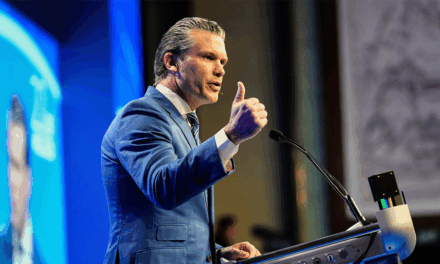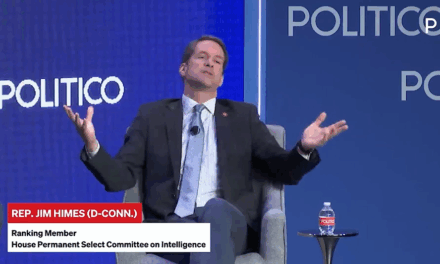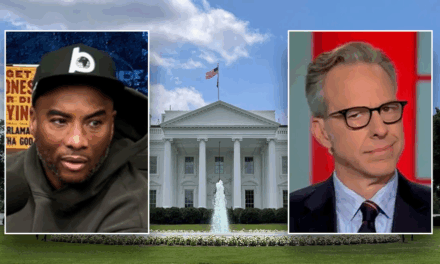A Mexican mayor has expressed approval for the immigration strategies put forth by former President Donald Trump, particularly his approach to deportations and the enforcement of immigration laws. This surprising endorsement highlights the complex relationship between local leaders in Mexico and U.S. immigration policies, especially those that promise stricter measures to control illegal activities.
The mayor, who leads a municipality in Mexico, has fervently praised Trump’s so-called “cleaning house” deportation plan, which aims to clear illegal immigrants from the United States. This local leader believes that the strategy will serve both nations by creating a safer environment and will significantly reduce crime rates associated with illegal immigration.
Throughout his administration, Trump focused heavily on immigration reform, making it one of his key campaign promises. His plan included not only deportations but also building a wall along the southern U.S. border and implementing policies designed to combat human trafficking and drug smuggling. For many supporters, these initiatives were viewed as necessary measures to protect American sovereignty and public safety.
Interestingly, this mayor’s support of Trump’s measures may stem from a recognition of the challenges that illegal immigration poses for border towns, particularly those near the United States. With significant populations crossing daily for work, local authorities have struggled to manage the flow of individuals who evade legal immigration channels. Thus, the mayor feels that stronger measures could bring about positive change.
Furthermore, the mayor argues that his communities have been adversely affected by crime associated with unchecked immigration. In his view, Trump’s deportation plan aligns with the desires of many people in his jurisdiction who seek security and stability. This presents a unique viewpoint, as typically, Mexican officials and leaders express concerns regarding the humanitarian impact of deportation policies, focusing on the families affected and the potential separation of loved ones.
However, it is essential to recognize that attitudes toward immigration in Mexico can be as diverse as they are in the United States. Different regions and communities may have varying views on the topic, influenced by local experiences, economic conditions, and societal factors. In certain instances, mayors and local leaders may adopt positions that reflect the sentiments held by their constituents, even if these positions might seem contradictory at first glance.
In addition, this endorsement of Trump’s deportation plan signals the intricate interplay of U.S.-Mexico relations, especially regarding issues of security and immigration. While Trump’s harsh rhetoric and policies drew widespread condemnation from Mexican leaders during his presidency, rising crime rates in their own communities have now led some officials to reconsider their stances in light of the potential benefits that stricter enforcement may bring.
Despite this stance from the mayor, it is crucial to acknowledge that many Mexican officials and activists remain strongly opposed to deportation policies, arguing that they exacerbate social and economic instability throughout the region. They advocate for comprehensive immigration reform that prioritizes humane treatment of migrants while still addressing concerns surrounding illegal immigration and border security.
The evolution of attitudes towards immigration on both sides of the border illustrates the ongoing complexities inherent in U.S.-Mexico relations. While some leaders may find common ground, the broader implications of deportation policies remain contentious, with discussions around the rights of migrants and their impact on communities still at the forefront of the debate.
In recent years, the dialogue surrounding immigration has taken on new forms, fueled by various factors, including economic pressures, changing demographics, and evolving political landscapes. The impact of such policies extends far beyond the immediate removal of individuals who enter a country illegally and echoes through families, communities, and economies on both sides of the border.
As the United States continues to grapple with its immigration policy, responses from leaders in Mexico will likely shift depending on the administration in office. Moving forward, collaboration will be essential to address the underlying causes of migration and to devise solutions that account for the shared challenges faced by both nations.
Unity in addressing crime, economic disparity, and social justice can foster a more stable environment in border communities. This incident reflects the nuanced nature of the discussion surrounding immigration and safety and invokes a call to action for leaders from both sides of the border to find common ground.
The Mexican mayor’s endorsement also resonates with a segment of the population that feels increasingly disenfranchised by crime and governance challenges. It provides a window into the broader sentiment that some may share regarding the need for practical solutions to immigration and safety that do not solely hinge upon partisan politics.
Future dialogues between leaders in the U.S. and Mexico will be pivotal as they explore the multifaceted implications of their policies. Those who advocate for a more humane approach to immigration reform might seek to address economic opportunities and educational access in tandem with discussions of enforcement and deportation.
In conclusion, the support from a Mexican local leader for Trump’s deportation plan brings to light the complex interplay of immigration laws and local governance in border communities. The evolution of these ideas and sentiments will undoubtedly shape discussions about immigration going forward, forcing a reevaluation of how best to approach border security while remaining sensitive to the rights and experiences of all individuals involved.
The ongoing dialogue surrounding immigration is emblematic of broader ideals and tensions that persist in the relationship between the United States and Mexico. As future administrations address these matters, they must navigate the intricate landscape of public sentiment, economic realities, and humanitarian concerns in seeking to create policies that benefit both nations.
































